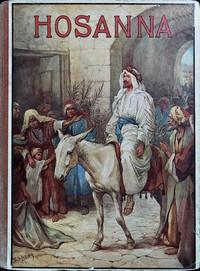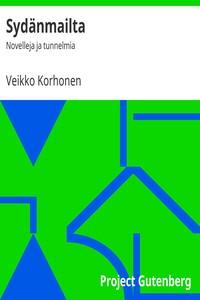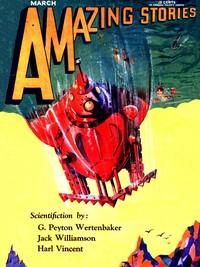Read this ebook for free! No credit card needed, absolutely nothing to pay.
Words: 105758 in 21 pages
This is an ebook sharing website. You can read the uploaded ebooks for free here. No credit cards needed, nothing to pay. If you want to own a digital copy of the ebook, or want to read offline with your favorite ebook-reader, then you can choose to buy and download the ebook.
Ethnographic-Boundaries of Ukraine. Number and Geographical Distribution of the Ukrainians 118 The Ukrainian Nation as an Anthropogeographical Unit General Survey 148 Anthropological Characteristics of the Ukrainians 159 The Ukrainian Language 167 Historico-Political Traditions and Aspirations of the Ukrainians 176 Ukrainian Culture 190 Relations between the Soil and the People of Ukraine 211 Economic-Geographical Survey of Ukraine 246 Hunting and Fishing 246 Forestry 251 Agriculture 255 Fruit and Vegetable Raising 267 Cattle Raising 271 Mineral Production 275 Industry 282 Trade and Commerce 292 Districts and Settlements of Ukraine 307 Bibliography 341 Index 346
Maps: General Physical Chart of Ukraine General Ethnographic Map of Eastern Europe Geological Map of Ukraine General Climatic Map of Ukraine Map of the Flora of Ukraine Structural-Morphological Map of Ukraine
PHYSICAL GEOGRAPHY
UKRAINE AS A GEOGRAPHIC UNIT
There are few lands upon the whole globe so imperfectly known to geographic science as the one which we shall try to describe in this little work. The geographic concept of the Ukraine does not exist in the geography of today. Even the name has been almost forgotten in Europe in the course of the last century and a half. Only occasionally on some maps of Eastern Europe the name "Ukraine" shows timidly along the middle of the Dnieper. And yet it is an old name of the country, originating in the 11th Century, generally known thruout Europe from the 16th to the end of the 18th century, and then, after the abrogation of the autonomy of the second Ukrainian state, gradually fallen into oblivion. The Russian Government has determined to erase the old name of the land and the nation from the map of Europe. Little Russia, West Russia, South Russia, New Russia, were officially introduced in place of the old name Ukraine, the Austrian part of the Ukraine receiving the name of East Galicia. The people were named Little Russians, South Russians, Ruthenians, and all remembrance of the old name seemed to have been blotted out. But, in the speech of the people and in the magnificent unwritten popular literature of the nation, the name of the land could not be destroyed, and, with the unexpected rise of Ukrainian literature, culture, and a feeling of national political independence in the 19th Century, the name Ukraine came into its own again. Today there is not an intelligent patriotic Ukrainian who would use another name for his country and nation than Ukraine and Ukrainian, and, slowly, these designations are penetrating foreign lands as well.
The Ukraine is the land in which the Ukrainian nation dwells--a great solid national territory embracing all the southern part of Russia in Europe, besides East Galicia, Northwest Bukowina and Northeast Hungary.
This district is a definite geographic unit. A discussion of its exact boundaries shall be reserved for the anthropogeographical part of this book.
A division of Europe into natural regions almost invariably stops at Eastern Europe. While all the other portions of our globe have long been the object of the most detailed classification, Eastern Europe remains, as before, an undivided whole. To be sure, there have been many attempts at classification, but they are all based upon a non-geographical point of view. Only the Baltic provinces and Poland are, in their present political extent, regarded as possible geographic units.
These deficiencies in the geographic material relating to Eastern Europe are due, above all, to our imperfect knowledge of this great region. Russian science is devoting far more intensive study to the Asiatic borderlands of the immense empire than to the European home country. For this reason, our literary aids in this direction are few and unreliable. The latter criticism applies even to the twenty-volume Geography of Russia by Semyonoff and the Geography of Krassnoff. Apart from the consideration that it is relatively out of date, the fifth volume of Reclus' "G?ographie universelle" still offers the best insight into this unique region of Eastern Europe.
If we glance at the map of Eastern Europe, we perceive at once that the great uniformity of this immense region makes it quite impossible to apply to Eastern Europe as a criterion the division of Western or Central Europe. It is not seas and mountains that separate the natural regions and anthropogeographical units of Eastern Europe, but imperceptible morphological transitions, hydrographic and climatic boundaries, petrologic and floral conditions.
The Ukraine is an Eastern European country. Its situation, its decidedly continental character, its geologic history, tectonic construction and morphologic conditions, its climate, plant and animal life, its anthropogeography--all are characteristic of Eastern Europe. But within Eastern Europe the Ukraine occupies a unique position, which fully warrants our conceiving of this great land as a geographic unit standing on an equal basis with the other natural units, as Great Russia, North Russia, the Ural, White Russia, the Baltic Provinces. But it also forms a characteristic transition country from Eastern to Central and Southern Europe on the one side, and to Western Asia on the other.
The location of the Ukraine causes us necessarily to consider it as the easternmost of the Mediterranean countries of Europe. The Ukraine differs from these other Mediterranean countries in that it is not hemmed in on the north by mountains. The back-country of the Black Sea, which the Ukraine really is, therefore merges gradually into the lands lying further to the north--Great Russia and White Russia. Of all the regions of Eastern Europe, the Ukraine alone has access to the Mediterranean.
Free books android app tbrJar TBR JAR Read Free books online gutenberg
More posts by @FreeBooks











